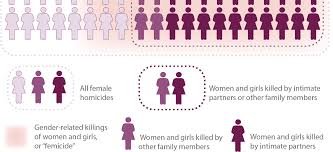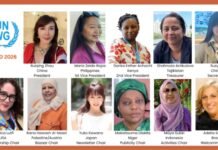Rights Issues Related to Terrorism, Sanctions, and Foreign Debt Also Discussed
Ongoing killings based on sexual orientation or gender identity are “inadmissible” and require urgent action from Member States, a human rights expert told the Third Committee (Social, Humanitarian, and Cultural) today. The Committee also heard from other experts on issues ranging from counter-terrorism, unilateral coercive measures, and foreign debt.
“These deaths simply should not occur anywhere,” declared Morris Tidball-Binz, Special Rapporteur on extrajudicial, summary, or arbitrary executions, while presenting his report (document A/79/172). The report contains recommendations, including the immediate repeal of all criminal penalties for consensual same-sex conduct, and calls for justice and security agencies to better understand LGBTQIA+ persons and the drivers of violence against them.
He emphasized, “there is no effective protection of the right to life without the capacity to investigate any suspicious death in a trustworthy manner,” expressing a commitment to a victim-centered approach to investigate and document illicit deaths to achieve truth, justice, and reparation. The report issues “an urgent appeal to put an end to and prevent once and for all the deaths of individuals due to their sexual orientation or gender identity” driven by “prejudices, discrimination, and hate,” he said.
This is a “global tragedy” that is “unacceptable and scandalous” with “no acceptable excuse” today, he stressed, demanding urgent attention from all States. “Most of these deaths could be avoided by adopting simple and non-onerous measures,” he said, urging States to implement the recommendations in the report. “The duty of States to respect and protect the right to life is not an option — it is an obligation under international law,” he added.
During the ensuing discussion, speakers voiced concern over the rise of hate speech against LGBTQIA+ persons and shared best practices to combat violence against the community. However, some dismissed the report as an attempt to legitimize non-consensual concepts.
The representatives of the United States and Belgium expressed concern over increasing hate speech against LGBTQIA+ people, even in their own countries, with the latter noting that polarization on social media exacerbates the issue. Calling for stronger protections for the community, he highlighted his country’s efforts, including banning conversion therapy and bolstering anti-discrimination laws.
Canada’s speaker welcomed global progress in legislation affecting LGBTQIA+ people, from decriminalizing and recognizing same-sex relations to facilitating official documents reflecting the gender identity of transgender persons. He voiced concern over legislative rollbacks targeting the LGBTQIA+ community, resulting in detentions and executions in some places, and highlighted the link between the legality of “harmful” conversion therapies and extrajudicial killings.
The representative of Kenya reaffirmed support for the rights of all people regardless of their sexual orientation. He highlighted ongoing efforts to create a bill protecting the rights of intersex people, which would facilitate informed consent in healthcare decisions and raise awareness about the group.
“It is the sovereign right of States to decide on their criminal laws based on their national and international obligations,” Iran’s delegate stressed, joining her counterpart from Iraq in rejecting the report’s focus. They noted that the report attempts to legitimize concepts not consensually agreed upon within the UN and ignores the cultural and historical background of many Member States. Similarly, the speaker from the Russian Federation called on the Special Rapporteur to avoid “neoliberal interpretations of gender issues” and focus on extrajudicial killings more broadly — such as those by Ukrainian armed groups and neo-Nazis against Russian soldiers and civilians.
Finland’s delegate, speaking on behalf of a group of Nordic and Baltic States, welcomed the report’s focus, noting that killings of LGBTQIA+ people have a significant impact on both communities and loved ones.
India’s delegate, noting her country’s positive track record on including LGBTQIA+ people in the business sector, rejected the Special Rapporteur’s “contradictory picture” of her country based on “dated” information regarding intersex babies. She emphasized that sex determination during pregnancy is illegal in India.
The representative of Brazil highlighted her country’s national plan for the protection of LGBTQIA+ people, noting that its Secretariat for the community is housed within the Ministry of Rights and Citizenship, demonstrating a commitment to combat violence and discrimination.
Among other experts briefing the Committee was Ben Saul, Special Rapporteur on the promotion and protection of human rights and fundamental freedoms while countering terrorism. He presented his report on regional organizations’ counter-terrorism efforts (document A/79/324). While the threat of terrorism “remains as real as ever” globally, “overbroad terrorism laws continue to be weaponized [by States] to intimidate and arbitrarily imprison political activists.”
He observed the positive role regional organizations can play in addressing regional problems, including terrorism, urging them to amend overly broad definitions of terrorism and improve oversight mechanisms. Accountability can be enhanced with more regular and detailed public reporting on counter-terrorism activities. “Counter-terrorism measures must never impede life-saving relief for acutely vulnerable civilians,” he stressed, urging States to indefinitely renew the humanitarian relief exemption in Security Council resolution 2664 (2022).
Margaret Satterthwaite, Special Rapporteur on the independence of judges and lawyers, emphasized the need to reclaim an independent and impartial justice system and take specific, concrete steps to defend it. She voiced concern over mistrust generated around court appointment processes amid allegations of corruption and a lack of civil society participation. Examining the influence of powerful economic actors on justice systems, she stressed that “judges and justice systems must be impartial, providing equal treatment to all.”
“If justice systems are seen to operate for the few rather than for all, damage to public trust may become irrevocable over time,” she warned, expressing support for the initiative by judges to declare January 11 as the Day of Judicial Independence. She highlighted the recently finalized European Convention on the protection of the profession of lawyer, aiming to ensure lawyers can practice without fear, prejudice, and restraint.
Alena Douhan, Special Rapporteur on the negative impact of unilateral coercive measures on human rights, warned of the rapid expansion of unilateral sanctions regimes and the active use of penalties against those allegedly circumventing such measures. These practices violate various human rights categories, affecting designated individuals and the general population in sanctioned countries, creating a protection gap.
Stressing the limited access to justice and remedies in sanctions environments, she called on sanctioning States and regional organizations to ensure that unilateral means of pressure comply with international obligations and stay within countermeasures’ limits under international responsibility law. She emphasized that measures not authorized by the Security Council constitute unilateral coercive measures and should be lifted.
Frequently Asked Questions
It's really very complicated in this busy life to listen news on TV, thus I simply use the web for that purpose, and
obtain the newest information.





It’s really very complicated in this busy life to listen news on TV, thus I simply use the web for that purpose, and
obtain the newest information.